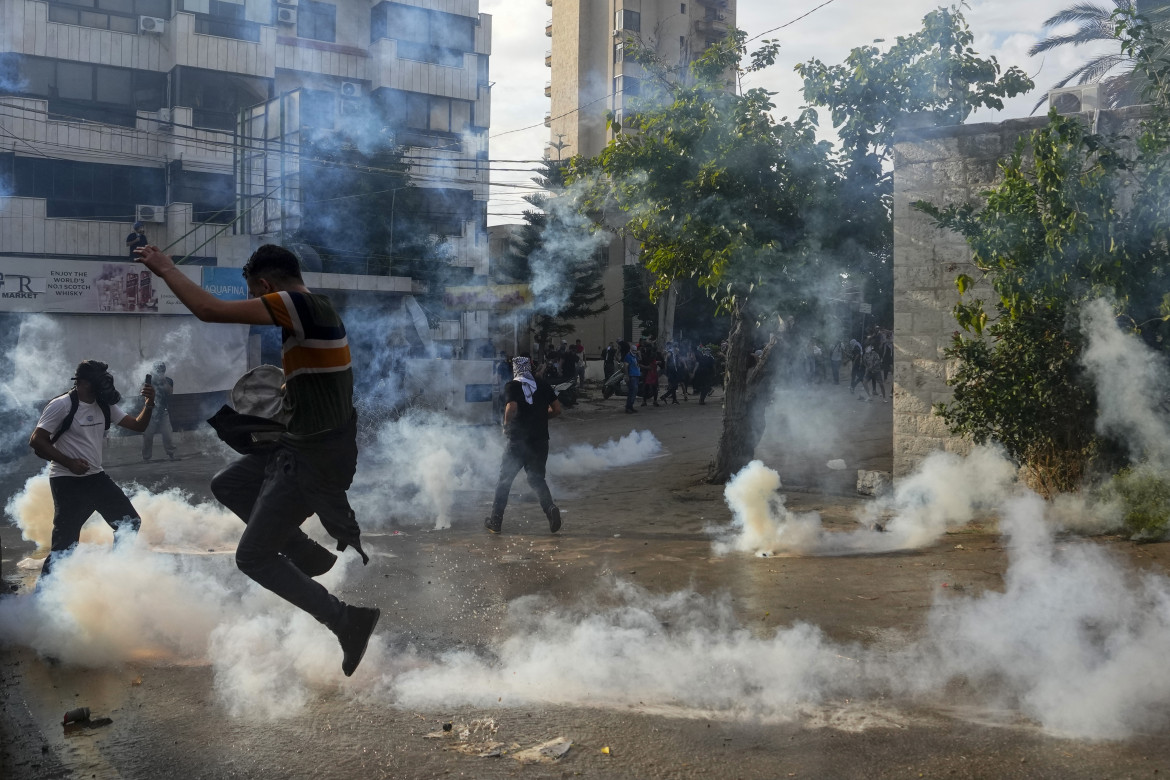The rise of post-political violence

It is no longer a risk, but a certainty: the twists and turns in the Middle East crisis are completely out of control – and so are their consequences throughout the world. Summits are being canceled, political alliances are breaking down, protests are boiling over across the Middle East, Islamist lone wolves are coming back to strike in the West, diplomacy is cowed by bombs. Everything is ruled by the unexpected.
Just as unforeseen, in the appalling course it took, was the aggression that marked the beginning of the war, both for the attacked and even for the attackers. So many questions are piling up, and there’s no plausible answer for any of them. Not about the future of the Gaza Strip, about what it would mean to annihilate Hamas with its vast fundamentalist roots – cutting across states, movements and communities – that support and fuel it, and wouldn’t fail to replicate it in other forms once it’s dismantled by the force of Israeli arms. Nor about Israel’s international image, which is increasingly being compromised as civilian casualties in Gaza are mounting; or on the Jewish state’s position in the Middle Eastern region, which, after what promises to be a ruthless war with exorbitant human costs and irresponsible actions, is on the verge of a general conflagration. Not even about Israel’s security, understood as something that should be a stable condition and not a perpetual show of force, alternating between besieging and being besieged. Not to mention what awaits the Palestinian population as a whole, once again a hostage to everything that’s unfolding.
There are no answers, because the events are overwhelming for the actors themselves. They certainly arise from a history that can be reconstructed, but that history (with all the wrongs and justifications that the warring sides each take away from it) is not enough to explain them; nor are material interests or cultural factors. Violence eventually detaches itself from its own causes and motivations, nourished by a sum of individual experiences and lived events that accumulate in a critical mass of people, which is then always ready to become manipulated and directed. This is how a post-political form of violence arises, all the more ruthless as it lacks a plan, a compass, a destination, propelled only by a rhetoric of revenge.
What was Hamas’s follow-up plan, after the horror of a massacre conducted under the banner of inhumanity and leaving even its perpetrators lost for words? The very predictable consequence could only be the thousands of Palestinian dead, victims of the Israeli reaction. In turn, its outcome and consequences remain hidden in the “fog of war,” since no such reaction can ever follow a thought-out plan. It’s all at the mercy of events, passions, the narcissism of force; at most with some fleeting calculations of greater expediency. It is a duty to condemn those who started it, but it is also trivial, with little effect on the course of events; and a matter of indifference for the victims – all of them. Above all, it doesn’t point to any solutions.
The parameters, the indicators, the criteria with which the Middle East quagmire has been analyzed up to now are being put to pasture. Geopolitics? An obsolete piece of junk we’ve been trying to superimpose on an elusive reality, far removed from the now-ancient division into spheres of influence in 1967 or 1973 and the echo of national liberation movements, currently rooted in the successive failures of the postcolonial era and the lives that have been torn apart by them. International law? No one in the field hasn’t trampled on this pale simulacrum at various times, each according to the power it had at its disposal, in spite of resolutions, appeals, declarations of principle. Major economic interests? They do matter, of course, but they cut across, circumvent and manipulate ideologies and alignments, states and anti-states. There is no tyrant in the world bloodthirsty enough, or terrorist group heinous enough, that they can’t do business with; that they can’t use, according to the needs of the moment, against their enemies and competitors.
In this chaotic uncertainty, an absolute polarization is growing, which is irredeemably engulfing every thought of prudence, every balance and distinction. In more than one major European country, it is forbidden to show solidarity with the Palestinians or to be horrified by the humanitarian catastrophe produced by the Israeli siege in Gaza. Such a restriction on the right to protest is unprecedented in a democratic context. Of course, we all know that what lurks in the pro-Palestinian camp is not only the legacy of Arab anti-Semitism, but also, in Europe and especially in Germany, the anti-Semitism that has always been a part of the Red-Brown tools of the trade, and which has never ceased to pose a threat. Just as, among the ranks of the most passionate advocates of the Israeli war response at whatever cost, it’s not uncommon to find Western supremacism and anti-Arab racism. The ruthless forms that the current clash has taken only fuel these grim inclinations.
In this precipitation of events, going beyond any predictive capacity and political rationality, there are those on both sides who are floating their own version of the “final solution”: whether that means wiping out Hamas together with the aspirations of the Palestinian people as a whole or, conversely, wiping the state of Israel off the map. Until these pointless hallucinations are banished forever from the minds and words of all contending parties, war will continue to fuel itself as the only and indispensable condition of existence.
IL MANIFESTO
No comments:
Post a Comment